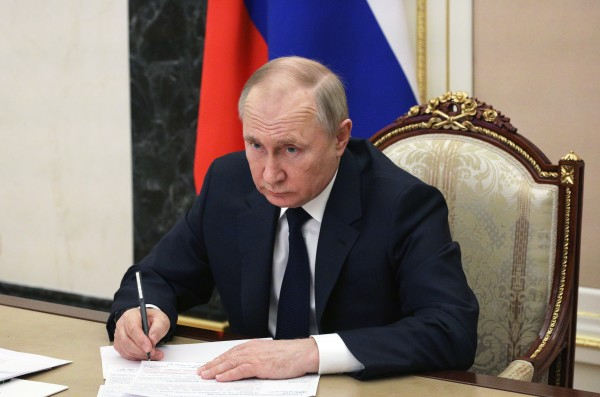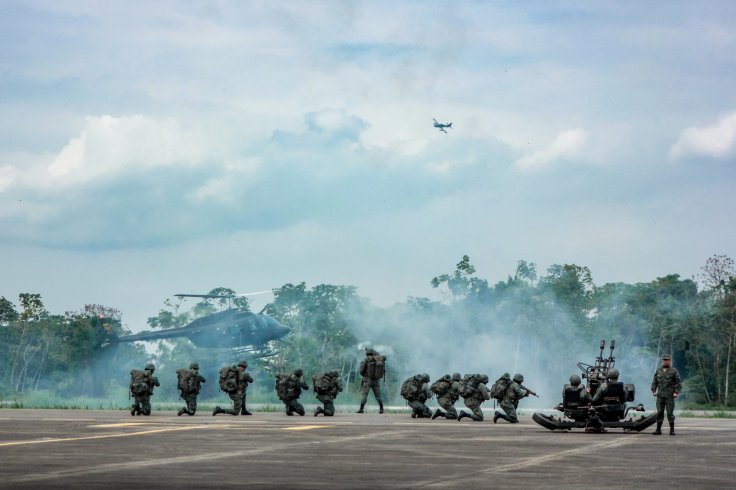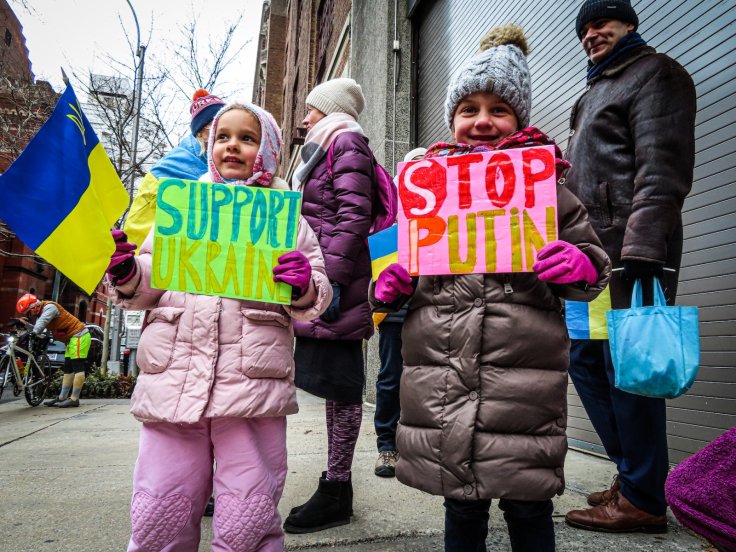The probability of Russia launching a full-blown nuclear attack has become the talk of the world as the Kremlin has already warned the West not to intervene in Ukraine or "face consequences that you have never encountered in your history".
This can be decoded as a nuclear attack which the world at this point in time doesn't need. The world witnessed the last and only time nuclear warfare used in combat, in 1945, during the World War II wherein the United States dropped atomic bombs on Japanese cities of Hiroshima and Nagasaki.
Now with the Ukraine war headed into the eighth month and showing no sign of ending, CIA Director William Burns said the prospect that the Russian president Vladimir Putin resorting to the use of tactical nuclear weapons should not be taken lightly.

Russia, with nearly 6,000 nuclear warheads, is the world's most heavily armed nuclear state. A nuclear attack with Russia at war in Ukraine cannot be ruled out. The world must believe that the Kremlin will use nuclear weapons under a certain set of conditions – usually in retaliation for a similar attack, or when it faces a threat to its survival.
Tactical or Strategic – It Doesn't Matter
Vitaly Fedchenko, a senior researcher with Stockholm International Peace Research Institute's (SIPRI) Mass Destruction Programme, believes a nuclear blast is a nuclear blast. He said there is no clear definition or agreement on what the difference is between tactical and strategic. Whatever it may, the body count is always ghoulish.

Fedchenko and fellow experts gave three outlooks about Putin's nuclear attack. "A high-altitude electromagnetic pulse blast over Ukraine that deep-fries electronic systems there and in Europe; a low-altitude detonation designed to kill tens of thousands of Ukrainians but not immediately affect those in neighbouring countries; and lastly the so-called ground burst, with the prevailing winds carrying the fallout helter-skelter around the globe.
Fedchenko said that's not taking into account any plans the Russian president has of using conventional weapons to annihilate Ukraine's 16 nuclear power reactors, which would transform the country into a "netherworld on Earth".
Putin Encouraged and Urged to Take Nuclear Action
Former Russian President Dimitry Medvedev, who is the current deputy chairman of Russia's Security Council, warned that Russian weapons, including strategic nuclear weapons could be used. Ramzan Kadyrov, Russia's regional Chechen chieftain, encouraged Putin to trigger the nukes. He said more drastic measures should be taken, right up to the declaration of martial law in the border areas and use of low-yield nuclear weapons.
But the United States will have none of it.
U.S National Security Adviser Jake Sullivan warned that if Russia crosses the line, "there would be catastrophic consequences".

The Comprehensive Nuclear-Test-Ban Treaty
The 1996 Comprehensive Nuclear-Test-Ban Treaty is a multilateral treaty to ban nuclear weapons test explosions and any other nuclear explosions for civilian and military purposes, in all environments.
Fedchenko said this treaty put a stop to Russia and the United States assessing capabilities. "There are many new radical designs, but without multiple live tests you don't know if any nuclear weapon will actually perform the way you intend. Nuclear arsenals are based on systems developed in the late 1980s or earlier.
Olena Pavlenko, an energy policy analyst at the Dixi Group, said the treaty is useless. She is disheartened with the United Nations as it has done nothing to curtail Russia's nuclear threats against Ukraine. "Putin for years has tried to intimidate us with the threat of nuclear destruction." Pavlenko highlighted that the UN's response is always 'let's not talk or do anything about it because Putin has nuclear weapons'.
But he said this has prompted Ukrainians to stock up on anti-radiation iodine pills and take other precautions against Putin turning the launch key on a nuclear strike.








